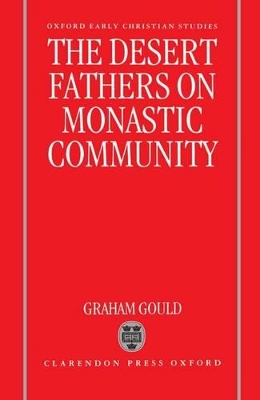Oxford Early Christian Studies
1 total work
Graham Gould studies the life and thought of the Christian monks of fourth and fifth century lower Egypt. He works from collections of their sayings and stories which were compiled in the late fifth century and which are known collectively as the Apopthegmata Patrum. These texts show that the Desert Fathers were deeply concerned with the nature of the monastic community which they formed and with the problems which might affect relationships between
individuals within it. Successive chapters of the book centre on the text of the Apopthegmata itself as a witness to the community's sense of its own history and identity; on the relationship between teacher and disciple in the context of which the practices and virtues of the monastic life were taught; on the
importance of good relationships between a monk and his companions in the monastic life; on the problems of anger, judgement, and praise which interfere with good relationships; on the tension between the desire for solitude and the necessity of inter-action with others; and on the connection between relationships with others and a monk's own life of prayer. The overall conclusion is that the Desert Fathers saw community as an integral part of their monastic ideal and rarely regarded solitude
as a way of life to be pursued at the expense of community.
individuals within it. Successive chapters of the book centre on the text of the Apopthegmata itself as a witness to the community's sense of its own history and identity; on the relationship between teacher and disciple in the context of which the practices and virtues of the monastic life were taught; on the
importance of good relationships between a monk and his companions in the monastic life; on the problems of anger, judgement, and praise which interfere with good relationships; on the tension between the desire for solitude and the necessity of inter-action with others; and on the connection between relationships with others and a monk's own life of prayer. The overall conclusion is that the Desert Fathers saw community as an integral part of their monastic ideal and rarely regarded solitude
as a way of life to be pursued at the expense of community.
